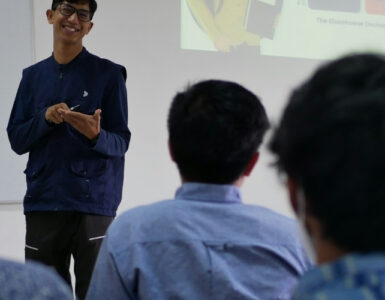Opening Thoughts: Where Legacy Meets Innovation
Aviation is steeped in tradition; thick manuals, debriefing sessions filled with pilot anecdotes, and mentorship rooted in human mentors’ intuition. Yet, the rise of AI-driven simulators and VR training systems is shifting this landscape, prompting us to ask: as we embrace data and immersion, will the art of storytelling fade from the cockpit?
1. The Rise of AI & VR: Trainers of Precision, Not Experience
From Simaero’s integration of AI and VR into flight training, we see the promise of adaptive, personalised simulations that adjust to individual trainees in real time, boosting skill retention and safety while reducing costs.
Companies like CAE are bringing advanced AI-driven tools such as the FlightSmart system into simulators, analysing thousands of performance variables to tailor training more effectively than ever before.
2. What Machines Do Best: Standardisation and Feedback
AI-enhanced systems provide consistent evaluation, replicable scenarios, and detailed performance analytics. With the guidance of human mentors, Embry-Riddle’s VR training and MIT’s AI projects showcase that AI can lighten pilot workloads, sharpen situational awareness, and improve training efficiency.
3. The Human Touch: Intuition, Vigilance, Mentorship
But even the most advanced simulations can’t replicate human instinct. Hello Jill Hoffman’s reflection on her father’s critical decision-making, based on feel, intuition, and lived experience, not data, echoes why human mentors remain vital.
At the 2025 AIAA Aviation Forum, safety expert Greg Feith cautioned against relinquishing control to automation: “Technology is a tool, not a replacement,” he asserted, reminding us that in emergencies, like the “Miracle on the Hudson”, it’s human judgment that shines.
4. Risks of Overreliance: De-skilling and Complacency
Academic studies underscore that increased automation risks are eroding both physical and cognitive skills. The “irony of automation” warns us that as humans become passive monitors, our ability to take over deteriorates, and when systems fail, the consequences can be severe—highlighting the continued need for human mentors to guide, intervene, and preserve critical expertise.
Voice-of-the-pilot realism from forums like Reddit adds weight to this: many emphasise that AI might manage routine tasks, but humans must stay ready for those outlier moments that machines misunderstand or overlook.
5. A Hybrid Future: AI as Ally, Not Replacement
The narrative that emerges is one of synergy, not substitution. As one article declares succinctly: “AI is not replacing aviation professionals- its helping them soar”– by taking on mundane tasks and freeing humans to think higher-order.
Academic thought leaders advocate for AI as a co-pilot, empowering, not eclipsing, human control. Maintaining human engagement, preserving agency, and embedding checks and balances into AI design remain paramount.
6. Keeping the Stories Alive: Why Mentors Matter
Human mentors share those mid-flight anecdotes: the unexpected crosswind, the flicker of a system before failure, the gut feeling that saved a flight. These stories can’t be coded; they live in memory and are passed to the next generation.
Even as AI-driven systems become standard, human mentors offer context, emotional intelligence, and the kind of insight that only comes from lived experience.








